Donald Trump’s tariffs won’t derail ‘golden era’ of US: Blackstone boss
The powerful Wall Street investor says markets need to hold their nerve and focus on the long term opportunities powering the world’s biggest economy.
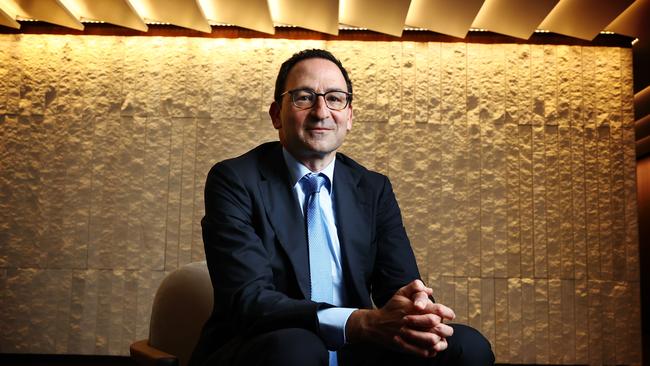
One of Wall Street’s most powerful investors believes markets are failing to fully grasp the golden opportunity from the technology boom that will power the US economy over the long term. Instead, they have become too fixated by Donald Trump’s wave of “tariff diplomacy”.
However, Blackstone’s president and global chief executive, Jon Gray, concedes the uncertainty created by the White House’s tariff push is likely to weigh on US growth in the near term.
The threat of tariff disruption was real as the boss of the $US1.2 trillion ($1.9 trillion) asset giant sat down with The Australian in Sydney on Thursday.
As the conversation got under way, Trump outlined plans to slap a universal 25 per cent tariff on all car imports to the US from early next month. At the same time, the US President is also planning a swag of reciprocal tariffs against trading partners on April 2.
This wholesale threat has been unsettling markets in recent days.
“I think it’s possible that we could see some slowing as a result of the uncertainty and certainly industries impacted,” Gray told The Australian, although he stopped short of calling a US recession. He says he still believes the tariffs plan has a long way to go before it settles.
“Our view is that over time, there’ll be a series of negotiations with different countries,” he says. This means investors will need patience.
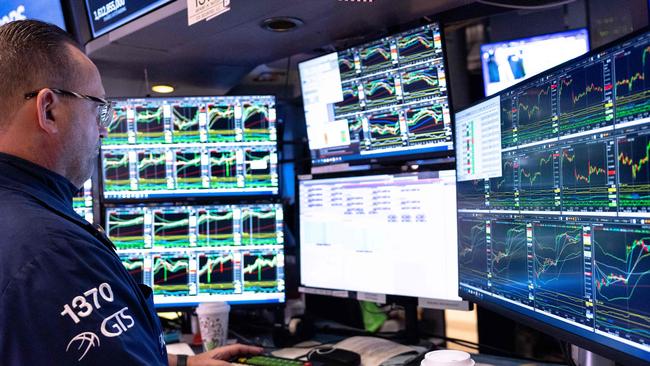
For this reason, Gray is not allowing himself to get too caught up in the headlines of the day, “or where the tariff diplomacy seems to be at” in any moment of time.
The broad US share index, the S&P 500, hit a technical correction in the past two weeks on fears that tariff threats were pushing up recession risk. High-growth names including tech’s so-called Magnificent Seven have been among the hardest hit.
At the same time, there’s been rising angst among big investors and US CEOs in recent weeks about Trump’s approach to trade. But Gray takes a contrary view. He argues it is all about the destination: Even with tariffs, the US will continue to be a strong place to do business.
“I believe that the goals [of the Trump administration] are for higher economic growth, less regulation. I don’t believe that has changed,” Gray says.
Driving the Blackstone boss’s conviction is the US’s leadership in technology as well as capital markets.
“There’s clearly some near-term volatility. But if you go back to why as an investor you would maintain optimism, it would be because you think these things will settle in a reasonable place in the fullness of time.
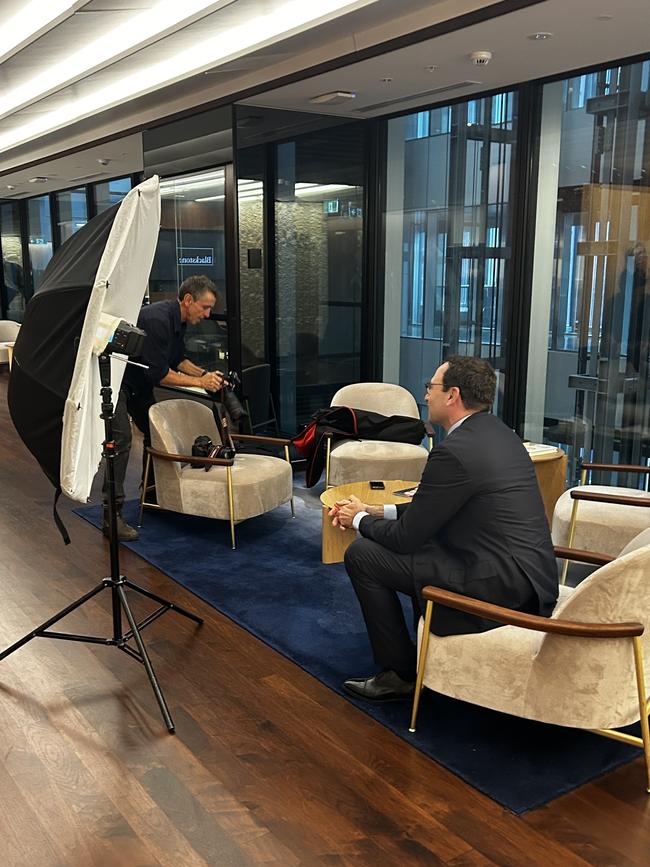
“You have to think that asset pricing for most things are reasonable; there’s still decent economic growth, even if it’s slowing, inflation is generally coming down, and there’s an amazing new wave of technology led by AI that is going to be powerful in terms of impacting businesses and their profitability.”
He says technology is going to fundamentally change the way we live our lives and how businesses operate across all areas.
“The fact that the US has such strength in that, as well as strength in other cutting-edge areas, like life sciences, bodes well for long-term US competitiveness,” he says. “So in the short term markets could go up and down, currencies could go up and down, sometimes valuations, things can move further than they should.
“If the broader question is, ‘do I think the US will grow as or more quickly than other developed markets in the world in terms of economic growth?’ – I’d say the answer is yes.”
Globalisation push
Volatility in markets also creates moments of opportunities for asset managers like Blackstone, which has $US168bn in so-called dry powder to spend on acquisitions and investments. Nearly half of this has been earmarked for private equity opportunities.
“The fact there’s a level of unease in the market, that may create some opportunities for us deploying capital,” Gray says.
Even with the outward focus by Trump to onshore the industrial base, Gray says tariffs don’t mean the end to globalisation. Rather, the motivation is about tackling the bigger issue between the US and its partners on trade parity and market access.
“I don’t think it’s the idea that everything’s going to again be manufactured back in the United States and there’s going to be a 100 per cent shift. But I think directionally they do want to see for both jobs and national security to come back. But then I also think they want to see more parity in terms of market openness.
“I still think we have a very globalised world in terms of capital flows, services, manufactured goods. I think we’ll continue to have that again. We have to wait and see where each of these negotiations lands.”
Blackstone’s investments around the world include hard infrastructure, commercial property, data centres and a booming private credit portfolio.
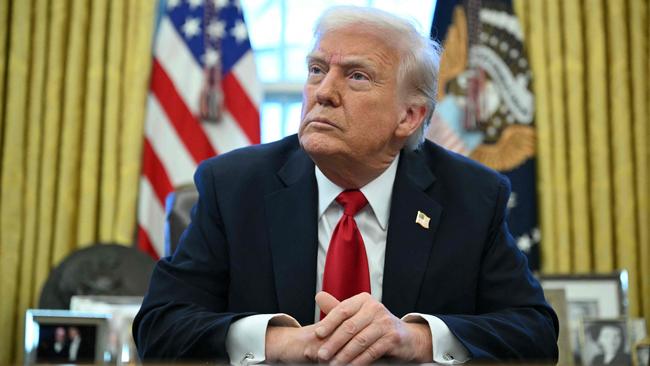
It’s Gray’s third visit to Australia in as many years. Blackstone counts some of Australia’s biggest super funds as some of his biggest clients.
Gray’s Blackstone has more than $50bn now invested here across property, healthcare, and three years ago paid $US8.9bn for casino major Crown Resorts. Late last year, Blackstone paid $24bn for the supercharged data centre operator AirTrunk. However, the US still represents three-quarters of Blackstone’s mammoth portfolio.
Indeed, Blackstone has doubled down on its tech investments under Gray. It is the biggest owner of data centres in the US, and with AirTrunk is now one of Asia’s biggest operators, and it has a major stake in Europe.
The arrival of China’s DeepSeek – a low-cost AI model that relies on much less computing horsepower – earlier this year hasn’t shifted the appetite for data centres, Gray says.
Following the debut of DeepSeek, Gray has held a series of meetings with his big tech company customers to discuss their own plans for AI.
“What we continue to hear is they need more capacity. They’re going to continue to invest significant amounts of cat bags. Maybe there’s a shift in terms of the relative mix of these big training models versus inference answering questions, but the path of travel is still for more data centres.”
As costs come down, AI can be deployed more widely, which all adds up to computing demand. Data centres will continue to be the physical manifestation of technology. “I think the combination of the fact that the underlying users still seem pretty bullish about their demand over time and the way we do this gives us a lot of confidence,” Gray says.
Nor does DeepSeek change the investment proposition around Air Trunk. Blackstone stunned many by paying a knockout $24bn for the business, acquired from Macquarie late last year. Gray says it was a transaction he followed closely. It was a “full, but fair” price.
“The management team there have built something incredibly special,” he says. “I have very high confidence that this will be a successful investment for us, and the early returns are quite good because of the continued demand, and I think the potential to expand the business is really compelling.”
‘Pretty bullish’
Still, the fastest-paced expansion has been Blackstone’s private credit business. Fund flows into private credit grew a staggering 20 per cent last year and, at more than $US375bn, represents Blackstone’s single largest asset class. Five years ago, it was about $US120bn.
It’s becoming a hotly contested area and is one that was traditionally serviced by banking or debt markets, but allows Blackstone’s super fund or life insurance clients to generate returns by lending long. Blackstone represents one of the world’s biggest private credit operators, with names such as KKR, Apollo and Australia’s Macquarie also playing in the field. More recently, Larry Fink’s BlackRock has made a determined run in the space.
Gray dismisses the risks, arguing it’s about matching the right long-term loans to borrowers. “When people are talking about risk, even in direct lending, I think in the fourth quarter, the average loan to value we did was around 40 per cent,” he says. “If you think about back in the Global Financial Crisis, people were lending 70-75 per cent. Losses in non-investment grade remain low.
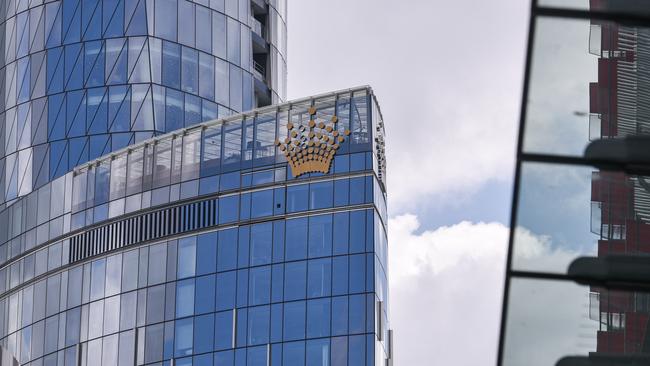
In total, Blackstone has $US315bn across real estate, $US352bn in private equity, with another $US459bn across debt financing and hedge funds.
Gray says Blackstone is “definitely all in on Australia”. It is starting to roll out its asset management platform to wealthy individual investors for the first time.
He concedes Crown Resorts started off slow with a “heavy lift” involved in compliance, technology and governance. However, momentum is picking up for Crown, with steady growth in tourism helping returns. Gray dined at Crown’s flagship Melbourne operation earlier this week. He also caught up with AirTrunk founder and CEO Robin Khuda in Sydney.
“Cyclically, Australia is coming off the bottom,” he says. “You had Covid; you had a China slowdown that was pretty material. You had inflation, and then very high interest rates. And it feels to us like this is a moment where the country is going to pick up.”
He says the recognition from government at all levels of easing regulation to improve housing supply and digital infrastructure will help speed up growth. “We’re pretty bullish about this place.”
johnstone@theaustralian.com.au
Originally published as Donald Trump’s tariffs won’t derail ‘golden era’ of US: Blackstone boss



